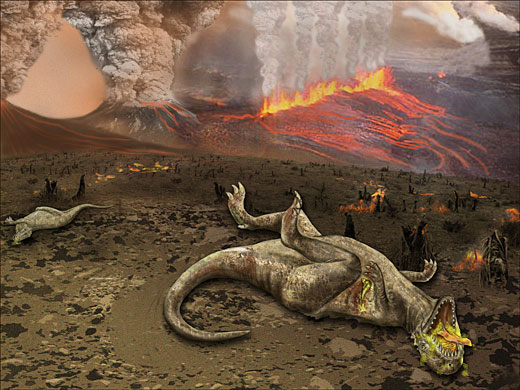Green - Sixth Mass Extinction Underway, Say Scientists
Over 500 million years, the Earth has had five mass-extinction events. Now, scientists say the sixth is underway and humans are to blame.
"This is the case of a biological annihilation occurring globally," said Professor Rodolfo Dirzo of Stanford University, co-author of a new study appearing in the peer-reviewed journal Proceedings of the National Academy of Sciences. The study stands out not just for drawing a drastic conclusion, but for the alarming language used to make its point.
"The situation has become so bad it would not be ethical not to use strong language," said Professor Gerardo Ceballos from Mexico's Universidad Nacional Autonoma. "The massive loss of populations and species reflects our lack of empathy to all the wild species that have been our companions since our origins," he added, "It is a prelude to the disappearance of many more species and the decline of natural systems that make civilization possible."

Previous mass extinctions were caused by asteroids - such as the event that killed off the dinosaurs - or by natural climate changes, or even volcanic eruptions. But the sixth one is the result of human activity.
Other recent studies have shown that species are going extinct at a much faster rate than for millions of years before. Half of all individual animals have been lost in recent decades. Thousands of species are losing populations, but a third of them are not considered endangered.
The causes include: habitat destruction, over-hunting, toxic pollution, invasion by alien species, and climate change. But the primary thin ravaging the natural world is human overpopulation and continued population growth, plus over-consumption - especially by the wealthiest.
This has led the authors to conclude, "The resulting biological annihilation obviously will have serious ecological, economic and social consequences. Humanity will eventually pay a very high price for the decimation of the only assemblage of life that we know of in the universe." And the prognosis isn't good: "All signs point to ever more powerful assaults on biodiversity in the next two decades, painting a dismal picture of the future of life, including human life."









 Create PDF
Create PDF Print
Print Email to friend
Email to friend